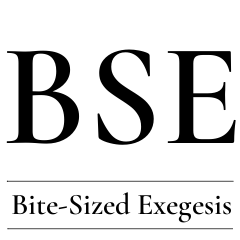While the traditional reading of John 1:3-4 divides the sentences between the verses, there is some text-critical evidence that the perhaps the period should come before the last couple of words of verse 3. Which one is the correct reading, and how can we know?
Category Archives: text-criticism
Reading Amos 2:4-5 in Context
The oracle against Judah in Amos 2:4-5 is typically regarded by scholars as a later insertion due to its use of Deuteronomic language and the apparent vagueness of its accusation. This article argues that dating a text late solely because of the presence of so-called “Deuteronomic” language is logically circular, and it proposes a reading of the first two chapters of Amos that makes the oracle against Judah an integral part of the passage’s rhetoric rather than an obligatory insertion.
“Good Will Toward Men”, Lectio Difficilior, and the Inspiration of Scripture
Luke 2:14 has well known variant readings (is “good will” nominative or genitive?), and despite scholarship preferring one over the other, the choice between these readings is not clear. How do variant readings and translations affect our understanding of the inspiration of the Bible? What if ambiguities weren’t something God intended to work around but something he intended to work within.

